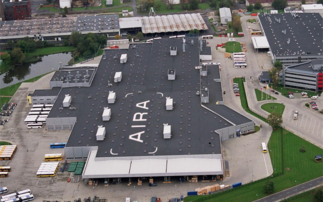Credit: iStock
Group of top institutional investors publishes new guidance on how to decarbonise portfolios in line with net zero goals
The Institutional Investors Group on Climate Change (IIGCC) has today published an updated Net Zero Investment Framework - dubbed 'NZIF 2.0' - following consultation with more than 200 major investors over a three-year period.
The updated framework, which has been widely adopted by many of the world's largest institutional investors, offers guidance on a range of asset classes, as well as some revised terminology and criteria, setting out how companies can work to deliver on net zero goals for their portfolios.
Moreover, NZIF 2.0 signposts investors towards additional support, guidance, and the latest thinking from the Asia Investor Group on Climate Change (AIGCC), Ceres, Investor Group on Climate Change (IGCC) and IIGCC on how to operationalise and make progress towards individual net zero targets.
The updated document includes a new portfolio decarbonisation objective in line with the NZIF's emphasis on "financing reduced emissions" rather than "reducing financed emissions" - a distinction designed to help boost investment in the technologies and industries that can help drive down emissions across the economy.
The update also reaffirms how financed emissions should not be used as a single metric to create year on year emissions reduction targets.
Additionally, there is new guidance for how to incorporate sovereign bonds, real estate, and private debt into investors' net zero targets, as well as the formal inclusion of guidance published after the NZIF launched in 2021 on infrastructure and private equity investments.
Other improvements include new emissions performance criteria for listed equities and corporate fixed income, and new certificate deposits guidance to support net zero cash management.
"Based on three years of practical experience, NZIF 2.0 incorporates the latest guidance on net zero target setting and the latest thinking on the levers available to investors to meet their net zero goals," said Stephanie Pfeifer, CEO at the IIGCC. "For investors looking to identify and manage climate-related transition risks and opportunities in their portfolios, the Net Zero Investment Framework has cemented its position as the number one resource to accompany them along their journey."
Rebecca Mikula-Wright, CEO of the AIGCC and IGCC, added: "Investors are under all kinds of pressure to show their climate commitments are credible, are translating to real world action, and support good returns for beneficiaries. The Net Zero Investment Framework is the best practice tool to guide investment practice and give trustees confidence that climate risks and opportunities are being properly addressed."
Keep up to date with all the latest green business news by signing up to the free Daily and Weekly BusinessGreen Newsletters.










